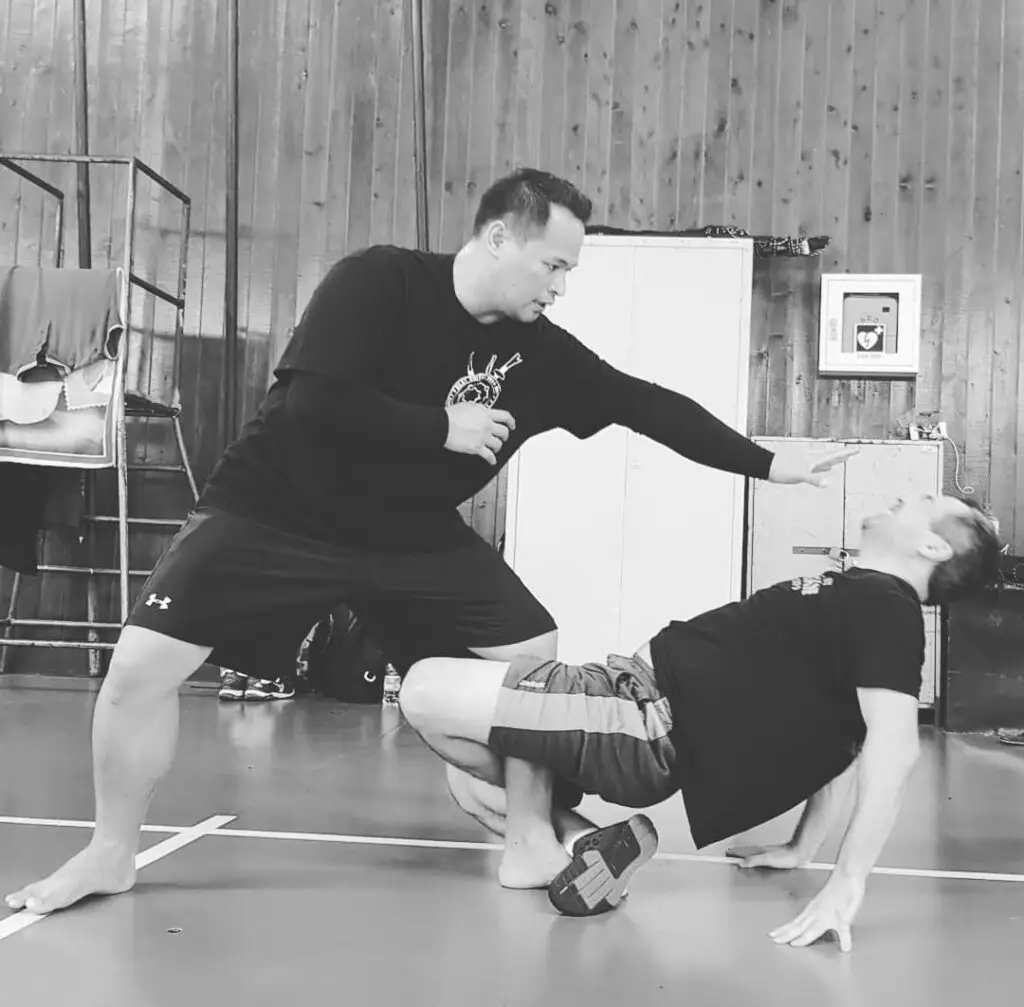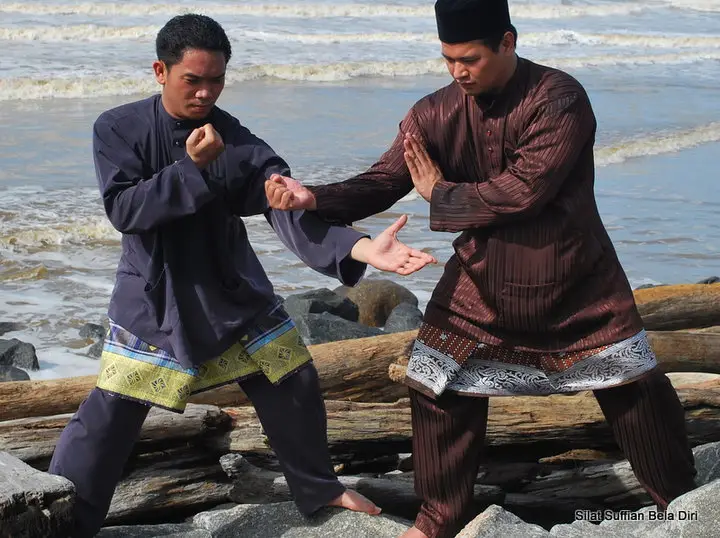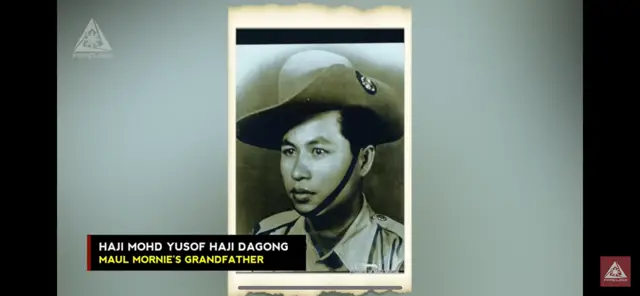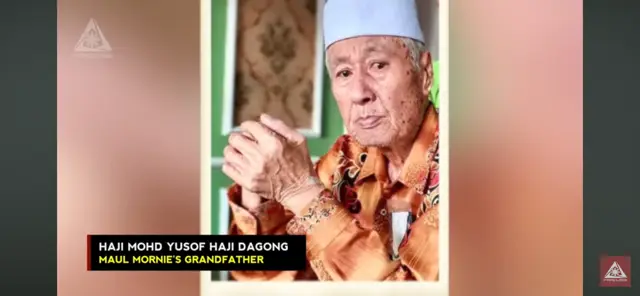Hi!
My name is Maul Mornie. I’m originally from Brunei, and I spent over 20 years living in the UK before moving back home in 2019.
I’m the founder of Silat Suffian Bela Diri (SSBD), a traditional martial arts system deeply rooted in Brunei’s heritage. Over the years, SSBD has grown into a global community, welcoming people of all ages, backgrounds, and martial arts experience.
We’ve been fortunate to receive interest from professionals in law enforcement, the military, and federal agencies in the United States. As awareness of SSBD continues to spread, more countries are now looking to start their own training groups. Some of our long-time students have even begun teaching SSBD themselves, sharing their passion and keeping the art alive.
It’s truly inspiring to see how far SSBD has come. Whether you’re new to martial arts or a seasoned practitioner, there’s always room to grow, connect, and be a part of SSBD family.


At SSBD, one of the things we truly value is the cultural heritage behind the martial art. Just like Taekwondo reflects Korean traditions or Karate carries the spirit of Okinawa, Silat Suffian Bela Diri (SSBD) is deeply connected to the way of life in Brunei Darussalam.
Through SSBD, I aim to share not just techniques, but also the cultural roots and stories that shaped them. Our movements and body mechanics aren’t just about efficiency—they’re shaped by the environment and lifestyle of our ancestors.
For example, while many Silat styles use low stances, SSBD tends to be more upright. That’s because, traditionally, Bruneians lived in water villages, where homes were connected by narrow wooden bridges. In those tight spaces, staying upright and mobile was essential. Our techniques focus on breaking an opponent’s structure and balance—because on a narrow bridge, losing balance could mean falling into the water below. The goal is always to end a confrontation quickly and effectively.
Another unique aspect is our approach to ground movement. We don’t train on the ground just because it’s solid—we train for muddy, unstable terrain. In Brunei’s natural environment, if you tried to push off the ground with your hands or feet, you’d sink. That’s why we maintain three points of contact with the ground, often using our hips or buttocks to stay stable and spread our weight. It’s all about adapting to the environment and using what works best in real-world situations.
SSBD isn’t just a martial art—it’s a living expression of Bruneian culture, shaped by history, environment, and everyday life. And sharing that with the world is something I’m truly passionate about.
Silat Suffian Bela Diri (SSBD), founded by Maul Mornie, has earned international recognition and continues to spark interest among martial artists from all walks of life. What truly sets SSBD apart is its deep connection to the cultural traditions of Brunei Darussalam.
Unlike many systems that focus solely on technique, SSBD highlights the unique body mechanics and movement patterns shaped by Brunei’s way of life and its distinct fighting environments. It’s a martial art that tells a story—one of adaptation, heritage, and resilience.
Through SSBD, Maul Mornie is dedicated to preserving and sharing the rich cultural legacy of Bruneian martial arts. The system continues to attract passionate individuals who not only appreciate effective combat techniques but also value the cultural depth and meaning behind them.
People often ask me when and why I began learning Silat. For me, it started in childhood, and I was fortunate to learn directly from my grandfather and great-grandfather. Silat wasn’t just a hobby or a sport in our family—it was part of our daily life.
It taught us how to protect ourselves and those we care about, but it also instilled discipline, respect, and a deep connection to our heritage. Growing up with Silat was like growing up with a compass—it guided how we moved, thought, and lived.


At its core, Silat is a practical form of self-defense. It equips people with the skills and techniques needed to protect themselves in real-life situations. Whether facing an armed attacker or defending loved ones from harm, Silat provides the knowledge, awareness, and confidence to respond effectively.
It’s not just about fighting—it’s about being prepared, staying safe, and protecting what matters most.
Silat Suffian Bela Diri (SSBD), the style I practice, was originally passed down only within my family. It wasn’t something we ever intended to share outside our cultural circle. So when I began teaching people from different backgrounds, one of the biggest challenges was conveying the deeper meaning behind each movement.
Teaching a traditional art form to those unfamiliar with its roots requires more than just demonstrating techniques—it takes patience, context, and a strong foundation. I focus on the basics, not just to build skill, but to help students truly understand the essence of Silat and where it comes from.
While I teach the physical side of SSBD, I also emphasize the mindset behind it.
It’s not just about how we move, but why we move that way.
By exploring the cultural and historical background, students gain a deeper appreciation for the techniques and the environment that shaped them.
The way we move in Silat is deeply influenced by the environment and mindset of the people in Brunei, where the art was born. Our techniques aren’t just designed for combat—they’re shaped by the everyday challenges of life in a hot, humid climate. Tools like knives and machetes, for example, are common not only as weapons but as practical tools, which naturally became part of our martial training.
By learning to defend against the weapons familiar in our culture, we gain a deeper understanding of Silat and how it applies to real-world situations. It’s not just about physical movement—it’s about adapting to our surroundings and using what’s available to us in the most effective way.
Ultimately, my journey in learning and teaching Silat has always been about preserving tradition, passing down the wisdom of previous generations, and helping others connect with the cultural roots of this martial art. Silat is more than self-defense—it’s a living reflection of our heritage and a powerful way to stay connected to where we come from.
When it comes to Silat Suffian Bela Diri (SSBD) seminars and training sessions, we’re fortunate to attract people with genuinely positive attitudes. These events bring together a diverse mix of individuals—from complete beginners to seasoned martial artists with decades of experience, including those trained in MMA and traditional Japanese arts. Regardless of background, everyone shows up with humility, ready to learn and connect.
At SSBD seminars, we focus on creating a welcoming and respectful environment where people can train in high-quality martial arts while building friendships across cultures, religions, and genders. The atmosphere is lighthearted, with plenty of laughter and camaraderie—it’s truly a rewarding experience for everyone involved.
Some may view SSBD as a violent martial art, especially if their only exposure has been through online videos. But once they attend a seminar, they quickly see that our focus is on martial culture and practical self-defense. We don’t glorify violence—we teach how to control it, and how to end confrontations quickly and responsibly when protecting oneself or others becomes necessary.
One of the most beautiful aspects of SSBD seminars is the opportunity to train alongside people from all kinds of martial arts backgrounds. We welcome everyone, and it’s amazing to see how different disciplines come together, share knowledge, and form lasting connections.
We encourage participants to approach training with a smile and an open mind. It might sound cliché, but that mindset is key to getting the most out of the experience—whether you’re learning something new or exchanging ideas with fellow practitioners.
Our goal is to foster a space free of ego and negativity, where people can grow, learn, and enjoy the journey together. So whether you’re just starting out or have years of experience, we invite you to join us at an SSBD event. Come with a positive attitude, an open heart, and a willingness to connect with a passionate and diverse community. Together, we learn, grow, and keep the spirit of Silat alive.